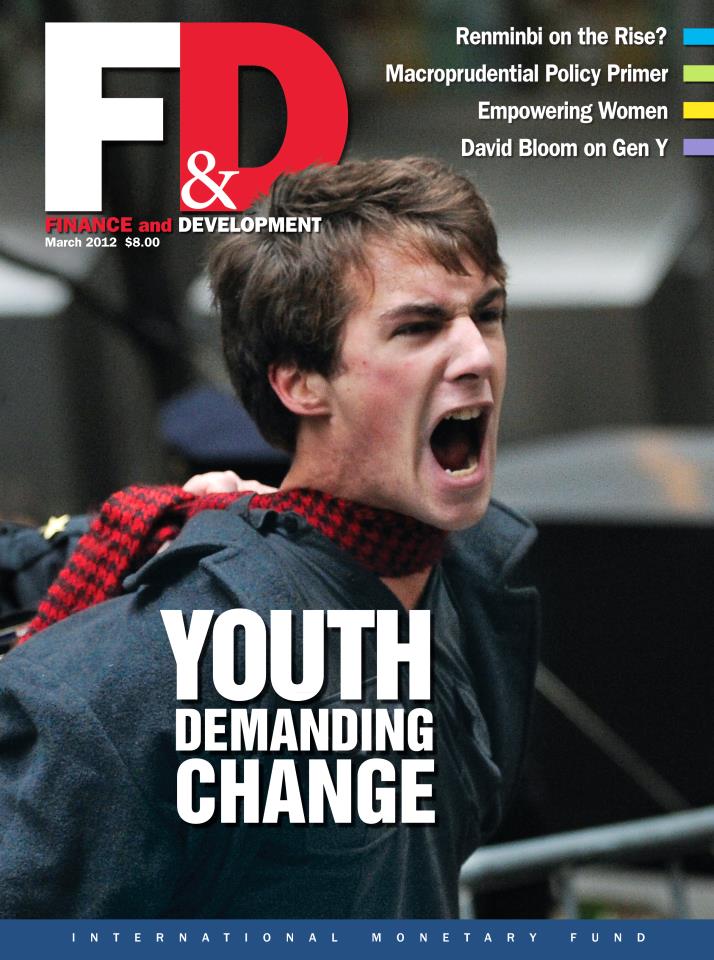Young people, hardest hit by the global economic downturn, are speaking out and demanding change. Coming of age in the Great Recession, the world’s youth face an uncertain future, with lengthening job lines, diminished opportunities, and bleaker prospects that are taking a heavy emotional toll.
Some people call them the iPod generation—insecure, pressured, overtaxed, and debt-ridden—but insecure or not, around the world young people are challenging a system that appears to have let many down. “Young people want a world economy that is more just, more equal, and more human,” says Angel Gurría, secretary-general of the Organization for Economic Cooperation and Development.
Differing impact on generations
[caption id="attachment_4641" align="alignright" width="223"] Youth Demanding Change[/caption]
Youth Demanding Change[/caption]
The Great Recession has taken its toll on the different generations in different ways. For the post–World War II baby boom generation, it’s essentially a wealth crisis. A generation that had hoped to retire has seen the value of its property and savings dramatically eroded. For the group known as Gen X (born 1965–80), it’s an income crisis. They should be in the period of their life when they are earning the most, but the downturn has depressed their salaries and threatens their pensions. For Gen Y (1981–2000), it’s about their future and the potentially damaging legacy of the boomer generation.
In recent issues of the magazine, we have looked at the impact of aging populations on economies around the world and how inequality affects growth.
In the March 2012 issue of F&D, we look at the need to urgently address the challenges facing youth and create opportunities for them. Watch a video on this.
Harvard professor David Bloom lays out the scope of the problem and emphasizes the importance of listening to young people.
Other articles look at the need to improve education and skill levels, the effect of the crisis on youth in advanced economies, and the role of the IMF. We also speak to six young people around the world about their hopes and aspirations and how the crisis has affected them.
Also in the magazine,
- we profile Fred Bergsten,
- examine the rise of the Chinese currency,
- look at the role of the credit rating agencies,
- discuss how to boost the empowerment of women, and
- present our primer on macroprudential regulation, seen as increasingly important to financial stability.




